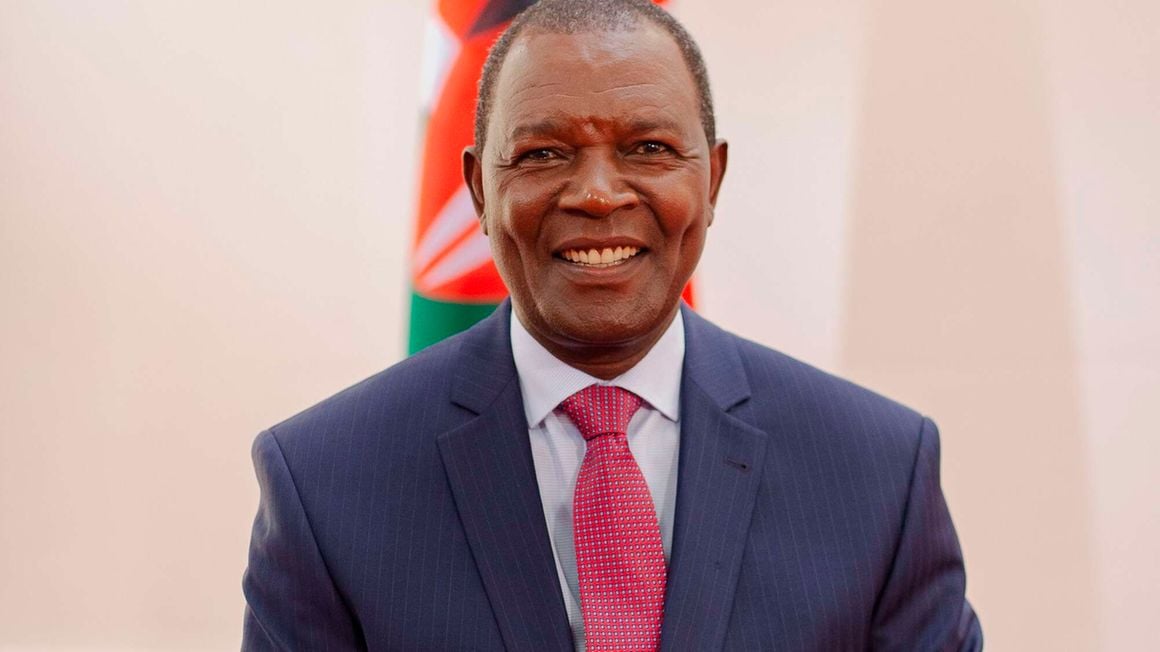
National Treasury Cabinet Secretary, Prof Njuguna Ndung’u. PHOTO | NMG
Global rating agency Fitch has downgraded Kenya’s credit rating to ‘B’ from ‘B+’ pointing to increased risks of default occasioned by tighter liquidity in light of elevated repayments.
The downgrade is due to elevated debt repayment obligations in the upcoming financial year including the maturity of a $2 billion (Sh245.6 billion) Eurobond in June 2024 amidst high financing costs in the international market.
The National Treasury was forced to cancel plans to issue an Sh115 billion ($1 billion) Eurobond, opting to borrow from a syndicate of commercial banks instead after it received bids priced at a high of 12 per cent.
A number of factors in the global economy have combined to tighten liquidity in the international capital market, making it difficult for high-risk emerging and frontier economies like Kenya to access financing such as the Eurobonds.
A weakened shilling saw the Controller of Budget Margaret Nyakang’o approve payment of an additional Sh5.4 billion in external debt servicing in the year ended June, underlining the impact of the currency woes on the country’s loan repayment obligations.
Kenya’s high budget deficits—or net borrowings—and huge public debts, the rating agency noted, also contributed to the revision of the country’s ranking to what it reckons is a “highly speculative” rating where there is a “material default risk.”
READ: Fitch Ratings says Kenya able to service long-term loans
“The downgrade reflects Kenya's persistent twin fiscal and external deficits, relatively high debt, deteriorating external liquidity, and high external financing costs, which presently constrain access to international capital markets,” said Fitch in a statement.
However, the downgrade to ‘B’ came with a Stable Outlook, which means the agency might revise it upwards should conditions get better.
“The Stable Outlook reflects some progress with fiscal consolidation, which is supported by a $2.3 billion (Sh282.2 billion) IMF programme, manageable near-term debt commitments and strong post-pandemic growth that is likely to continue over the medium term,” said Fitch.
READ: Ratings agency Fitch in fresh debt warning
The International Monetary Fund (IMF) has a 38-month programme with Kenya, which is aimed at reducing its debt vulnerabilities by cutting spending while increasing revenues—or what is technically known as fiscal consolidation.
Kenya, which has a high risk of debt distress, has already made some progress in the reduction of its debts, though at the expense of development spending, the World Bank noted in a recent report.
Kenya’s external position has been complicated by a reduction in its foreign exchange reserves which have dropped by the statutory requirement of four months of import cover.
Firms have been complaining of a lack of dollars even as the Shilling continues to weaken against the dollar.
“Despite IMF and other official disbursements, we forecast reserves to remain under pressure reaching $7.4 billion at end-2023. This would constitute a fall to three months of current external payments (CXP) at end-2023, down from 4.8 months of CXP at end-2021,” said Fitch.
In April, Fitch lowered its outlook on Kenya’s sovereign debt to ‘negative’ from ‘stable’, citing a projected slowdown in Kenya’s GDP growth in the run-up to the August 9 election jitters and continued fiscal pressures.
S&P, another global rating agency, affirmed a credit rating of B in August while Moody’s last rating placed Kenya at B2U.
→ dakure@ke.nationmedia.com




No comments :
Post a Comment